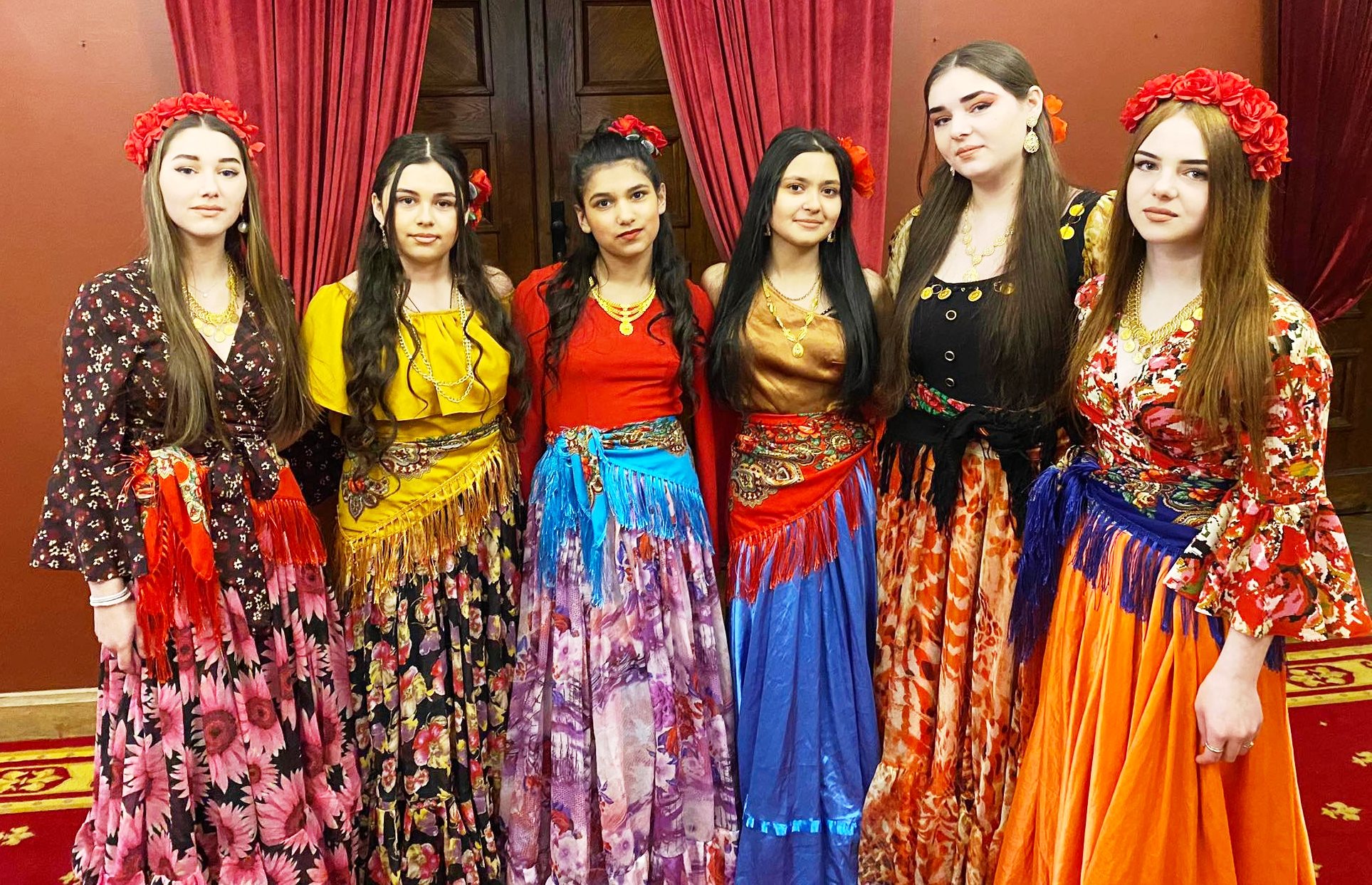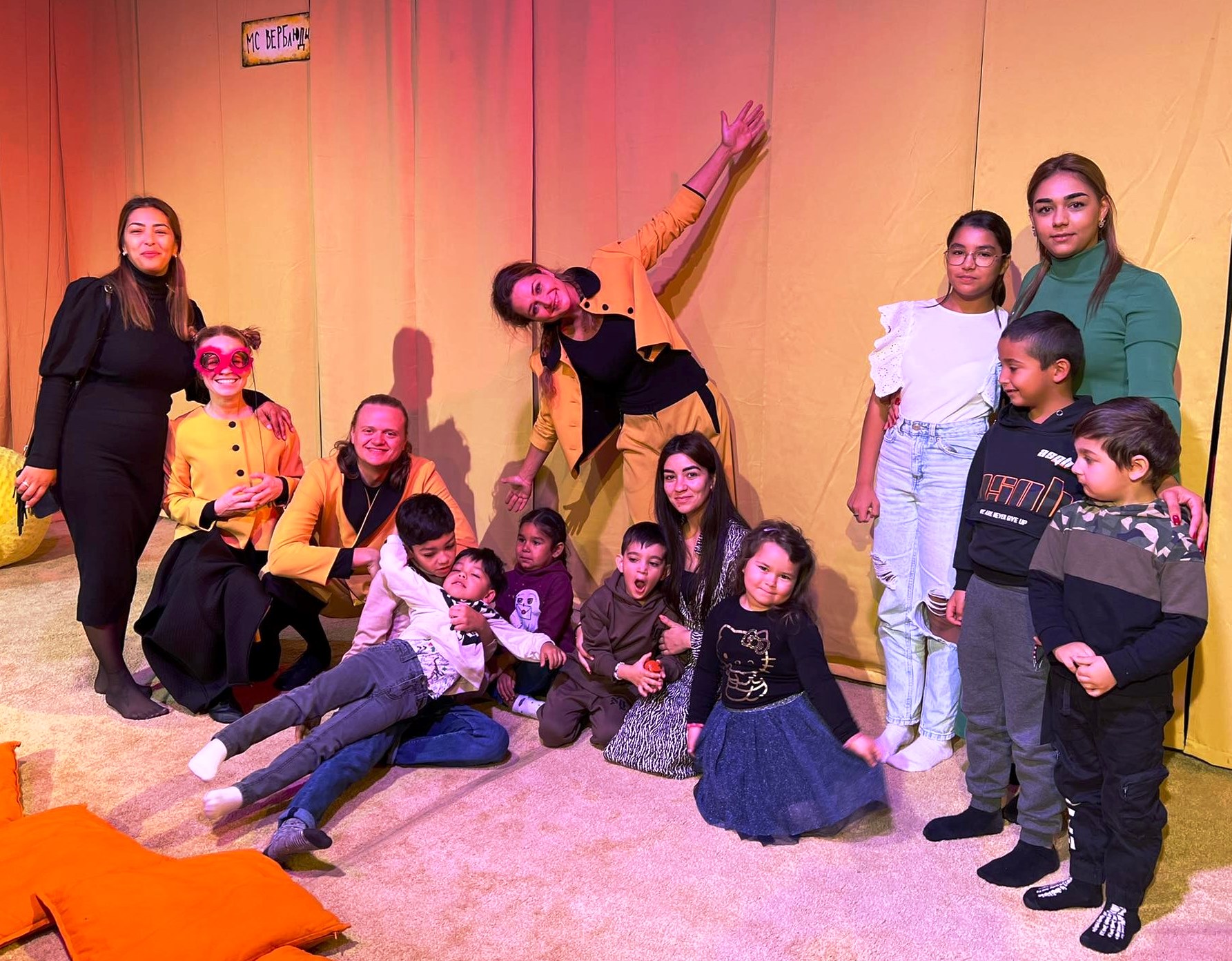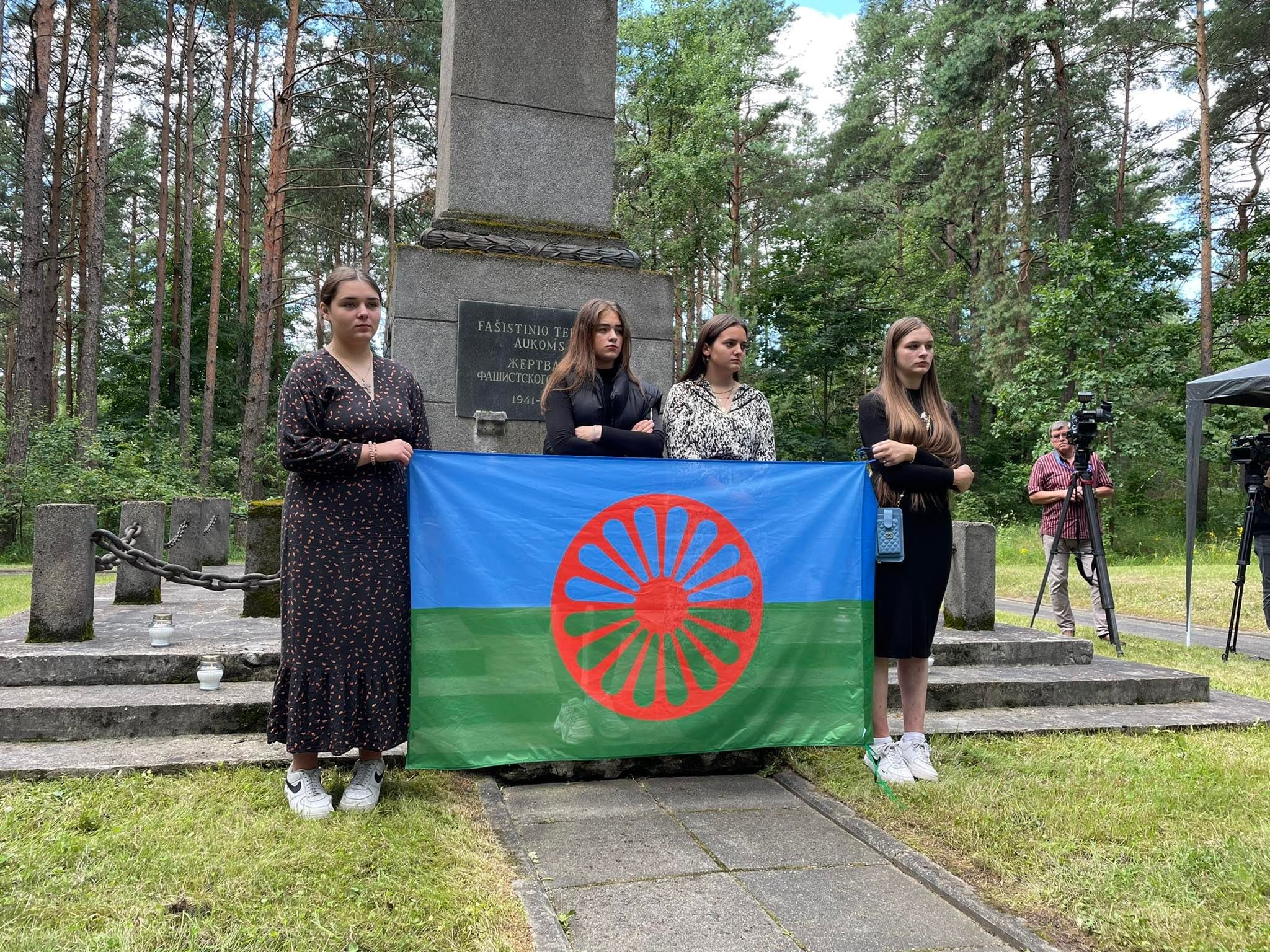Implemented projects:
Memory. Responsability. Future (Atmintis. Atsakomybė. Ateitis.)
It is a consistent staircase that leads to real positive changes in society. The future of democracy and tolerance depends on memory and responsibility, which allows ones to move forward. The goal of the project is a step into the future, based on experience of reviewing, evaluating and taking the best discrimination initiatives experience.
Read more (LT)
Let’s work together with Roma – new job opportunities and challenges (Dirbkime kartu su romais – naujos darbo galimybės ir iššūkiai)
The project was contributed to the 2015-2020 action plan for the integration of Roma into Lithuanian society, approved by the Minister of Culture of the Republic of Lithuania in 2015. January 29 by order no. ĮV-48, Annex 1, Subsection 3.1.4 of the measure “Provide labor market integration services for Roma, in order to avoid their social exclusion”.
Read more (LT)
Project ‘Recommendations on actions to combat anti-Semitism and Romaphobia in Lithuania’ (“Rekomendacijos dėl veiksmų kovojant su antisemitizmu ir romafobija Lietuvoje”)
Appreciating the great importance and relevance of inter-institutional cooperation, the Roma Community Center, together with experienced and well-known partners: the Lithuanian Jewish community, the Lithuanian Human Rights Center and the Women’s Information Center, as well as a group of experts, is implementing the EVZ (Germany)-supported project ‘Recommendations on actions to combat anti-Semitism and Romaphobia” In Lithuania, preparation and publicity’.
During the project the document was prepared: “Recommendations on actions to combat anti-Semitism and Romaphobia in Lithuania’ (LT).
Read more
Project ‘Recognize the faces of discrimination’ (“Atpažink diskriminacijos veidus”)
The Lithuanian Women’s Society together with the Lithuanian Children’s Foundation and the Roma Community Center in 2015. completed the project “Recognize the Faces of Discrimination”, funded by the Ministry of Social Security and Labor, which lasted for 5 months.
Read more
‘NGO Network to Empower the Roma Community’ (“NVO tinklas romų bendruomenei įgalinti”)
On 12-13 of May, during the implementation of the project ‘NGO Network to Empower the Roma Community’, funded by the European Economic Area Financial Mechanism NGO Program in Lithuania, a conference for non-governmental organizations, communities, interested ministries, representatives of municipalities was held. During it, the guest of the conference, the European Roma inclusion expert Marta Marczis, who has accumulated experience in areas such as poverty alleviation, environmental protection, rural development and community development, presented for the large number of conference participants the good European experience in working with the Roma and provided examples of community activities.
Read more (LT)
‘MBS – My Beautiful School, a place where it is possible to be happy’ (“Mano puiki mokykla, vieta, kur galima būti laimingam”)
“MBS – My Beautiful School, a place where it is possible to be happy” – it is a European project which aim is to clarify the relevance of the Montessori and Hallgarten didactic method in the Roma community in order to reduce segregation.
During the project the educational materials were created: ‘Application of the Montessori-Hallgarten method in the process of education and integration of Roma children’ (LT) and the presentation of the project My Beautiful School presentation (LT).
Read more (LT)
Project “Professional experts’ education for a better future of intellectually disabled Roma EXP – ROM” (“Profesionalus ekspertų švietimas geresnei sutrikusio intelekto romų ateičiai EXP – ROM”)
The origin of the project was motivated by the fact that disabled Roma are more rejected by the community. The goal of the project is to provide as much knowledge as possible to those who work with Roma with mental disabilities, to help the Roma community itself and society in general not to reject those with such disabilities. The main task is to promote the integration of people with mental disabilities into their own (Roma) community and society in general.
The partners of the project – Trebnje Education and Culture Center and Association SOŽITJE from Slovenia, Association for the Disabled ASEDDEEDIPE from Greece, youth organization AMBRITA from Hungary and the Roma Community Center, that conducted a situation analysis and created the basis for the content of the training course.
The educational materials that were developed during the project:
The leaflet of the project EXP-ROM (LT)
EXP ROM project training plan (LT)
Read more (LT)
VISTA
“The use of the video method in the formation of social skills in the training of adults experiencing social exclusion” is a project funded by the European Union. The aim of this approach is to use non-formal means and tools to create an environment for self-directed learning.
For this project the followinf learning material was translated into Lithuanian: VISTA learning material (LT).
Prosocial behavior for integration and multiculturalism (Prosocialus elgesys integracijai ir multikultūralizmui)
It is a project funded by the European Union, the main goal of which is to return children who dropped out of school early to the education system.
In order to ensure the smooth implementation of the project in the Lithuanian Roma community, “Prosocial sports club: didactic program” (LT) was prepared. Its purpose is to introduce and acquaint the school community (teachers, students, administrative staff and others) with pro-sociability.
‘History of Early Modern Painting’ (“Ankstyvosios šiuolaikinės tapybos istorija”)
The project ‘History of Early Modern Painting’ is a unique opportunity for the population of aging Europe to learn throughout their lives and to accept educational challenges as well as to increase the attractiveness and influence of adult educational activities.
Turn around to Roma (Atsigręžk į romus)
The goal of the project is to create a complex of measures for the inclusion of Roma people in the labor market and participation in society, which would help them not only to get a job, but also to remain in their workplace.
Cultural heritage and lifelong learning (Kultūrinis paveldas ir mokymasis visą gyvenimą)
The project envisages to motivate people who do not study at all or participate in formal education programs very rarely, as well as to try the possibilities of informal lifelong learning.
“Creation of a mechanism for preparing Roma for the labor market” (‘Romų paruošimo darbo rinkai mechanizmo kūrimas’)
In the project, much attention was paid to the types of activities that are considered as part of the integration of Roma into the labor market. The implementation of this project enabled some members of the Roma community to practically integrate into the labor market, prepare for legal work, gain equal opportunities to have a profession, receive work income and social guarantees.



